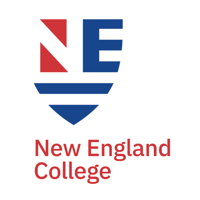Introduction
Universities are pivotal institutions in the realm of professional development, offering students the education, skills, and opportunities necessary for career advancement. They provide a structured environment where students can engage in rigorous academic programs, participate in research, and gain practical experience. This article will delve into the role of universities in professional development, emphasizing their importance for international students aiming to secure work authorization and succeed in the U.S. job market.
Academic Excellence: Building a Strong Foundation for Professional Success
Universities are known for their commitment to academic excellence, providing students with a robust education that serves as the foundation for their professional success. Through diverse programs and specialized courses, universities equip students with the theoretical knowledge and practical skills needed in their chosen fields. This rigorous academic training prepares students to meet the demands of the workforce, ensuring they are well-prepared to tackle professional challenges. For international students, the quality of education received at universities in the U.S. can significantly enhance their career prospects both domestically and globally.
Research and Innovation: Driving Professional Growth through Cutting-Edge Projects
Engaging in research and innovation is a key aspect of professional development at universities. Students have the opportunity to participate in groundbreaking research projects that push the boundaries of knowledge and technology. These experiences develop critical thinking, problem-solving skills, and the ability to conduct independent research. For international students, involvement in research can be particularly beneficial, as it provides practical experience and showcases their ability to contribute to their field. This can be a valuable asset when seeking work authorization through programs like Day 1 CPT, which emphasize the importance of practical, real-world experience.
Practical Training: Enhancing Employability through Internships and Work Programs
Practical training is an integral part of the university experience, offering students the chance to apply their academic learning in real-world settings. Internships, co-op programs, and work-study opportunities provide hands-on experience and help students build professional networks. For international students, practical training is essential for securing work visas and gaining employment in the U.S. Programs like Day 1 CPT enable students to work from the beginning of their studies, enhancing their employability and providing them with the skills needed to succeed in their careers. This practical experience is highly valued by employers and can make a significant difference in a competitive job market.
Conclusion
Universities play a critical role in professional development, offering a comprehensive education that includes academic excellence, research opportunities, and practical training. These elements work together to prepare students for successful careers, particularly for international students seeking work authorization in the U.S. By leveraging the resources and opportunities provided by universities, students can enhance their employability, build professional skills, and achieve their career goals. The journey through university is not just about acquiring knowledge but also about developing the capabilities needed to thrive in the professional world.



